
- iOS - Home
- iOS - Getting Started
- iOS - Environment Setup
- iOS - Objective-C Basics
- iOS - First iPhone Application
- iOS - Actions and Outlets
- iOS - Delegates
- iOS - UI Elements
- iOS - Accelerometer
- iOS - Universal Applications
- iOS - Camera Management
- iOS - Location Handling
- iOS - SQLite Database
- iOS - Sending Email
- iOS - Audio & Video
- iOS - File Handling
- iOS - Accessing Maps
- iOS - In-App Purchase
- iOS - iAd Integration
- iOS - GameKit
- iOS - Storyboards
- iOS - Auto Layouts
- iOS - Twitter & Facebook
- iOS - Memory Management
- iOS - Application Debugging
iOS - Actions and Outlets
Actions and outlets in iOS are referred to as ibActions and ibOutlets respectively, where ib stands for interface builder. These are related to the UI elements and we will explore them after knowing visually how to implement them.
Actions and Outlets Steps Involved
Step 1 − Let's use our First iPhone Application.
Step 2 − Select the ViewController.xib file from the files in the navigator section.
Step 3 − Now, you can select the UI elements from the library pane in the right hand side of our window, which is shown below.
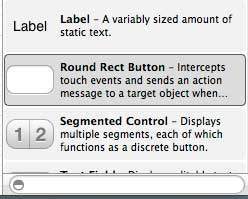
Step 4 − You can drag and drop the UI elements to our view in our interface builder.
Step 5 − Let us add a Label and Round Rect Button to our view.
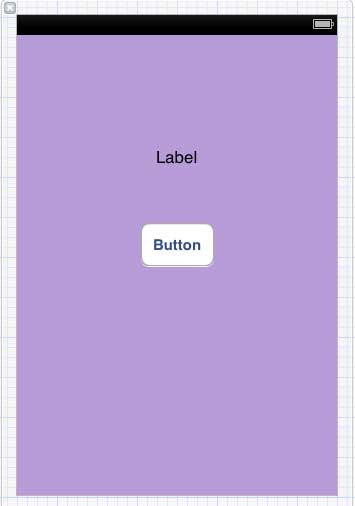
Step 6 − From the Editor Selector button in the workspace toolbar found on the top right corner as shown below.

Select Assistant editor button.

Step 7 − We will see two windows in our editor area in the center, one is ViewController.xib file and the other is ViewController.h.
Step 8 − Now, right click on the label and select, hold and drag the new referencing outlet as shown below.
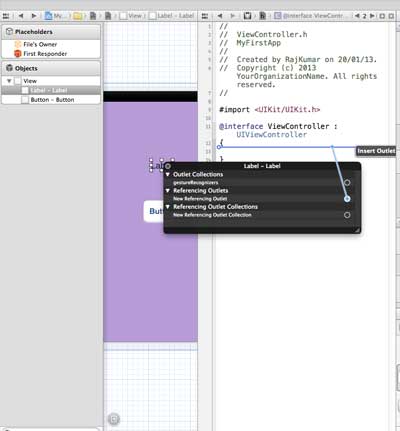
Step 9 − Drop in the ViewController.h in between the curly braces. In case there are no curly braces in the file, add the ViewController before doing this. You will find a pop-up as shown below.
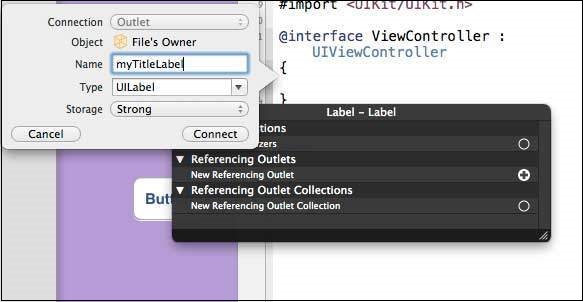
Step 10 − Type the label name for the outlet, here we have used the label myTitleLabel. Click connect and the ibOutlet will be complete.
Step 11 − Similarly, to add an action, right click the Round rect button, select touch up inside and drag it below the curly braces.
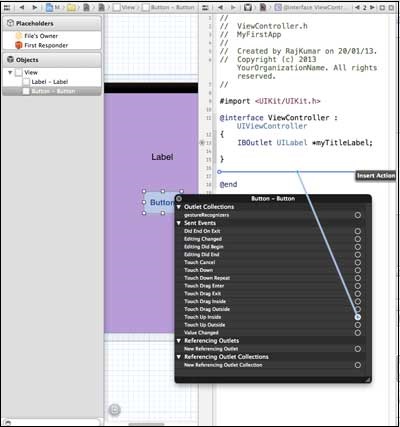
Step 12 − Drop it and name it setTitleLabel.
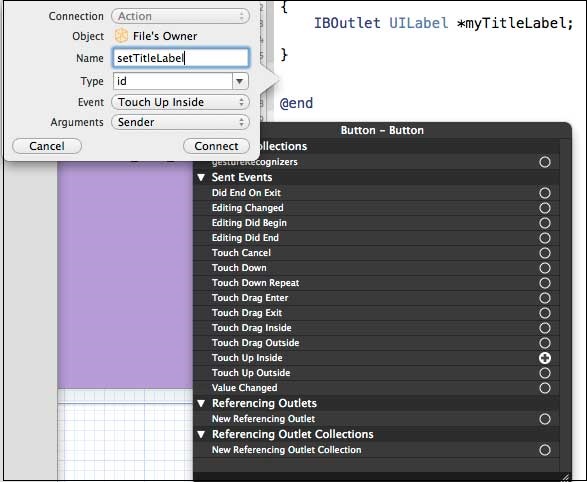
Step 13 − Select ViewController.m file, you'll find a method as shown below.
-(IBAction) setTitleLabel:(id)sender {
}
Step 14 − Add a statement as shown below inside the above method.
[myTitleLabel setText:@"Hello"];
Step 15 − Let us now run the program by selecting the run button. You will see the following output.
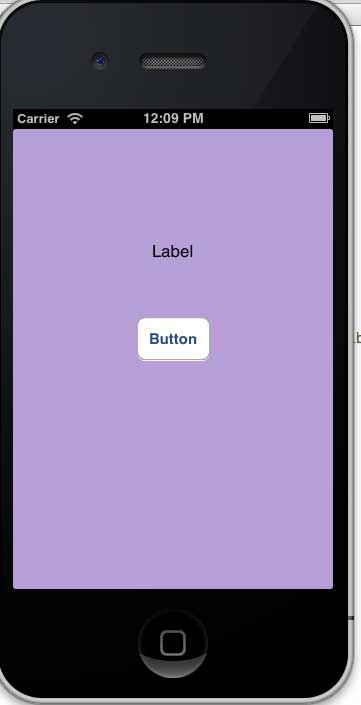
Step 16 − Now click the button.
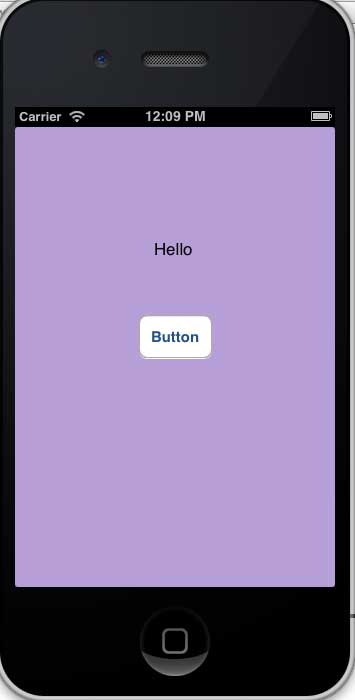
Step 17 − The label that we created have been changed by the action on the button.
Step 18 − From the above example, we can conclude that IBOutlet creates a reference to the UIElement (here for the UILabel). Similarly, the IBAction links the UIButton with a method, which is called on the event touch up inside.
Step 19 − You can play around with actions by selecting different events while creating the action.